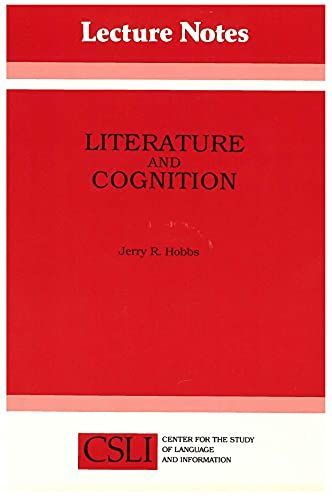
Literature and Cognition
Cognitive science, with its guiding metaphor of the mind as a computer, has made substantial progress towards an understanding of how people comprehend and produce discourse. The essays in this book apply these insights to problems in the interpretation of literature. The first two chapters present the outline of a cognitive theory of discourse and use it to shed light on some classic issues in literary theory, including the roles of the author's intention and the reader's brief systems in the meaning of a literary work. The next three chapters are more technical investigations of discourse interpretation, metaphor, and discourse coherence. The framework developed is then used in the examination of two literary works, a sonnet by Milton and the novella Sylvie by Gérard de Nerval.